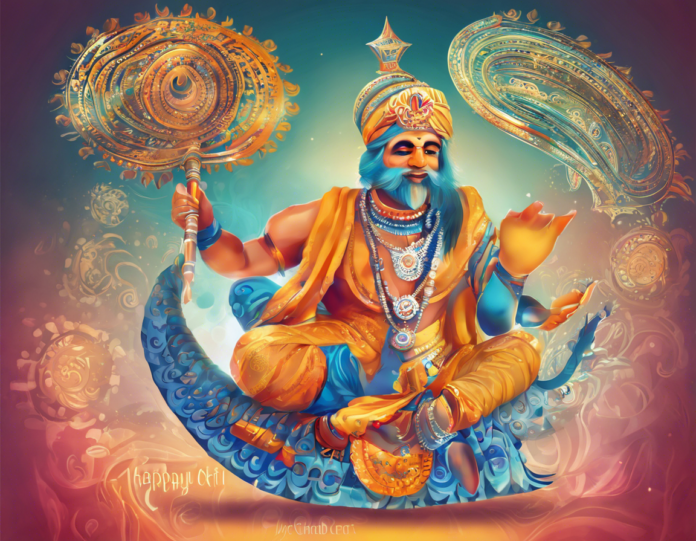Cheti Chand
Cheti Chand is an important festival celebrated by the Sindhi community to honor the birth of their patron saint, Jhulelal, also known as Uderolal. This festivity falls on the second day of the Chaitra month, according to the Hindu calendar. It usually takes place in March or April and marks the beginning of the Sindhi New Year. Cheti Chand is a time for prayer, reflection, and community gathering.
History and Significance
The history of Cheti Chand dates back to the 10th century when Jhulelal, a mystic saint, appeared in Sindh to promote unity, peace, and harmony among people of different religions. Jhulelal’s teachings of tolerance and compassion towards all humanity are central to the celebrations of Cheti Chand. The festival symbolizes the triumph of good over evil and the importance of leading a righteous life.
Rituals and Traditions
Cheti Chand is marked by various rituals and traditions that are observed with great enthusiasm by the Sindhi community. The day begins with prayers and offerings at temples dedicated to Jhulelal. Devotees dress in traditional attire, offer sweets and flowers, and participate in singing bhajans and devotional songs. Many people also observe a fast on this day as a form of spiritual cleansing and to seek blessings for the year ahead.
Community Celebrations
Community gatherings and cultural events are an integral part of Cheti Chand celebrations. People come together to share festive meals, exchange gifts, and dance to traditional music. Cultural programs, skits, and plays based on the life and teachings of Jhulelal are organized to educate and entertain participants. The vibrant colors, joyful music, and delicious food create a festive atmosphere that fosters a sense of unity and camaraderie among the Sindhi community.
Symbolism and Customs
During Cheti Chand, many customs and symbols are observed to honor Jhulelal and seek his blessings for prosperity and well-being. Water, considered sacred in Sindhi culture, plays a significant role in the celebrations. Images of Jhulelal are immersed in rivers or lakes as a symbolic ritual of purification and renewal. This act represents the cleansing of impurities and the renewal of one’s commitment to leading a virtuous life.
FAQs about Cheti Chand
-
What is the significance of Cheti Chand for the Sindhi community?
Cheti Chand holds great religious and cultural significance for the Sindhi community as it marks the birth of their revered saint, Jhulelal. It symbolizes unity, compassion, and the triumph of good over evil. -
How is Cheti Chand celebrated?
Cheti Chand is celebrated with prayers, offerings, community gatherings, cultural events, and traditional rituals such as fasting and immersion of Jhulelal’s images in water bodies. -
What is the role of water in Cheti Chand celebrations?
Water is considered sacred in Sindhi culture, and during Cheti Chand, it is used for purifying rituals and symbolizes cleansing, renewal, and spiritual transformation. -
Are non-Sindhis allowed to participate in Cheti Chand celebrations?
Cheti Chand celebrations are open to everyone, and people of all backgrounds are welcome to join in the festivities, learn about Sindhi culture, and partake in the joyous atmosphere. -
How can one observe Cheti Chand if there are no local celebrations?
If there are no local Cheti Chand celebrations, individuals can still observe the festival by praying, fasting, listening to devotional music, and reflecting on the teachings of Jhulelal in their homes or with a small group of like-minded individuals. -
Are there any specific dishes that are prepared during Cheti Chand?
Traditional Sindhi dishes such as saibhaji, sindhi kadhi, koki, and sweet treats like singhar ji mithai are commonly prepared during Cheti Chand to be shared with family and friends as part of the celebrations. -
Can I learn more about the history and teachings of Jhulelal during Cheti Chand?
Yes, during Cheti Chand celebrations, various cultural programs, plays, and events are organized to educate participants about the life and teachings of Jhulelal, providing an opportunity to learn more about the saint’s significance in Sindhi culture. -
How can I participate in Cheti Chand celebrations outside of my community?
One can participate in Cheti Chand celebrations outside of their community by connecting with local Sindhi associations, temples, or cultural centers that may organize events or activities to commemorate the festival. Online resources and virtual events may also offer ways to engage with Cheti Chand celebrations remotely. -
What are some common greetings exchanged during Cheti Chand?
During Cheti Chand, people often greet each other with blessings and well wishes such as “Jhulelal bless you with happiness and prosperity,” “Cheti Chand joon lakh lakh vadhaiyun,” or simply “Happy Cheti Chand!” -
How can one incorporate the values of Cheti Chand into their daily life?
The values of unity, tolerance, compassion, and righteousness emphasized during Cheti Chand can be incorporated into daily life by practicing kindness, empathy, and respect for others, striving to lead a virtuous life, and upholding the principles of Jhulelal in interactions with family, friends, and the community.
